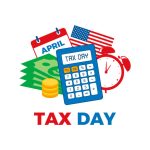Legislative Overview ~ April 15, 2025

On “Tax Day,” the North Dakota Senate took up the only tax-related bill on the agenda, HB1534 . This bill would cap annual property valuation increases at 3% for all taxable properties, unless a higher increase is approved by voters through a ballot measure—valid for up to four years. The measure also prevents cities or counties from bypassing the cap through home rule authority, ensuring the limit applies statewide.
Though passing it would have provided property owners with more predictable tax bills and limit sudden increases, it may also have restricted local governments’ ability to raise revenue for services and infrastructure. The bill was NOT passed. The bill reflects ongoing efforts to balance taxpayer protections with the fiscal needs of local communities.
Here is a summary of what took place during today’s floor sessions:
19 Bills Passed in the Senate and awaiting Governor’s Signature: HB1020, HB1193, HB1329, HB1566, HB1581, HB1612, SB2022, SB2023, SB2024, SB2037, SB2051, SB2058, SB2155, SB2159, SB2232, SB2241, SB2251, SB2280, & SB2375. Those which were failed include: HB1266,HB1330, & HB1534.
17 Bills Passed in the House and awaiting Governor’s Signature: HB1008, HB1017, HB1027, HB1361, HB1429, HB1476, HB1537, HB1588, HB1591, SB2001, SB2019, SB2021, SB2025, SB2188, SB2228, SB2265, & SB2390. Those which were failed include: SB2097.
The Bills we are tracking regarding the business world include:
SB2097: https://ndlegis.gov/assembly/69-2025/regular/documents/25-0231-05000.pdf ~ FAILED
This Bill creates the Rural Community Endowment Fund to support capital projects in North Dakota towns with populations under 1,200. Once the fund reaches at least $10 million in principal—half of which must come from private or non-state sources—its investment earnings can be used to award grants for housing, workforce, business recruitment, infrastructure, and other community development efforts. A committee made up of rural residents and nonprofit representatives will oversee the grant process.
This bill could benefit rural business owners, local governments, and nonprofits by providing a new funding source for economic and community development. Small businesses may gain improved infrastructure and workforce support, while local organizations could access resources to boost quality of life and attract new residents.
SB2228: https://ndlegis.gov/assembly/69-2025/regular/documents/25-1205-02000.pdf
This Bill could significantly impact rural grocery store owners by providing financial support to help sustain their businesses. This funding could allow them to address challenges such as rising operational costs, supply chain issues, and declining customer bases in rural areas. However, receiving grant funds may introduce new regulatory requirements and oversight that could add administrative burdens. The bill prioritizes existing stores, offering them a competitive edge over potential new market entrants, potentially limiting competition but ensuring stability for long-standing businesses.
SB2251: https://ndlegis.gov/assembly/69-2025/regular/documents/25-0851-03000.pdf
This Bill proposes the repeal of Section 44-04-16 of the North Dakota Century Code, which pertains to the provision of blanks and records. If passed, the bill could impact businesses that rely on these records for administrative or compliance purposes by eliminating certain state-provided forms and documentation requirements. This could lead to changes in how businesses manage their record-keeping and interactions with government agencies.
HB1534: https://ndlegis.gov/assembly/69-2025/regular/documents/25-0791-03000.pdf ~ FAILED
This Bill seeks to limit annual property valuation increases in North Dakota to no more than 3% unless approved by voters through a ballot measure. The bill applies to all taxable properties and restricts cities or counties from overriding it through home rule authority. If approved by voters, valuation increases beyond 3% would be valid for up to four taxable years. This bill could impact property owners, real estate businesses, and local government revenues.
~ In an unexpected turn, the House moved to reconsider SB2307—a bill they had just passed the day before. While the debate wasn’t as lengthy as the previous day’s, it was still extensive, with members divided over the bill’s merits. Those supporting reconsideration argued it would save on state’s attorney administrative costs, while those in favor of keeping the bill emphasized the importance of protecting children. Ultimately, the motion to reconsider was defeated, so the bill as passed now heads to the governor’s desk for his decision.
Although SB2307 isn’t directly business-focused, it’s interesting to see how our members feel about such issues that impact the broader community. Do you think the governor should sign or veto this bill? We’re curious to hear your perspectives, as understanding where our members stand on a range of topics helps us better represent your interests. Let us know your thoughts!
Jan Wangler, Executive Director 

